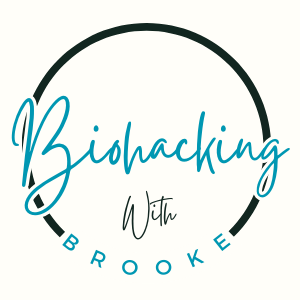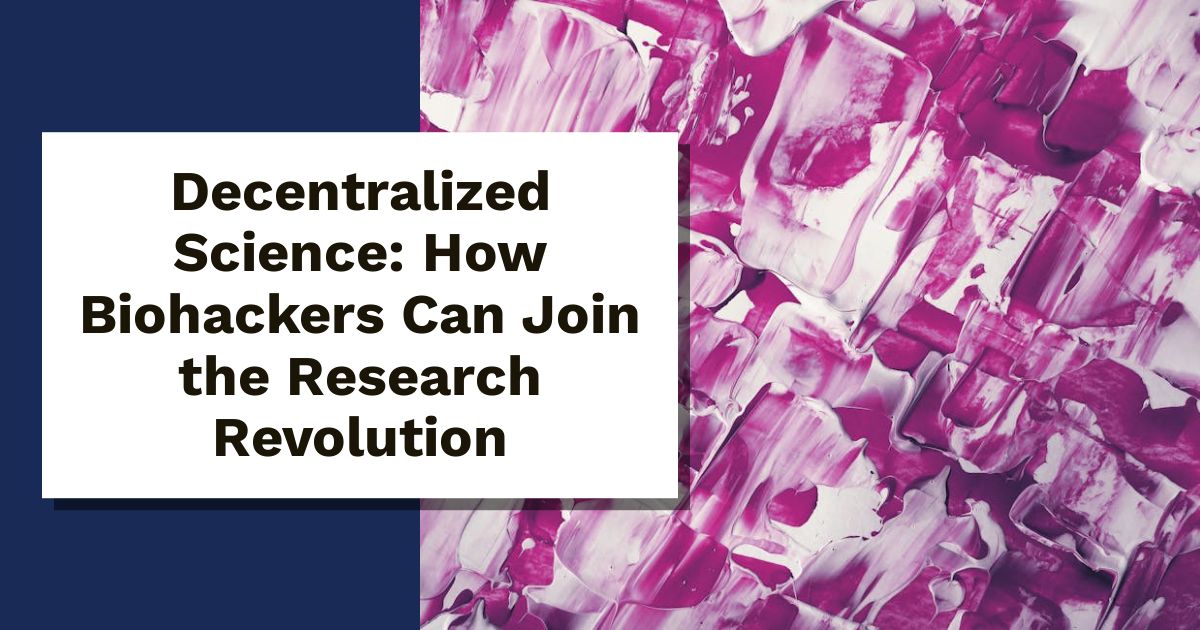Imagine a world where anyone can contribute to scientific research. Welcome to decentralized science, where citizen participation is key. This approach allows passionate individuals, like biohackers, to step into the spotlight, collaborating on groundbreaking projects.
Gone are the days when research was limited to elite labs. Now, anyone with curiosity and determination can join the movement. Decentralized science democratizes knowledge, making it accessible and inclusive.
In this post, you’ll discover how biohackers can play a significant role in this transformation. From sharing data to running experiments, your contributions matter. Get ready to dive into a new era of research that values your voice.
What is Decentralized Science?
Decentralized science (DeSci) is about breaking down barriers in research. It empowers everyday people, like you and me, to participate actively in scientific progress. It encourages collaboration, transparency, and shared knowledge. This movement embraces innovative tools, including blockchain technology, to create a community-driven approach to research.
Key Characteristics
Decentralized science has several defining traits that make it unique and impactful:
- Community Focused: DeSci promotes collective participation, allowing individuals to contribute without the constraints of academic gatekeeping.
- Transparency: Open access to data and findings means everyone can verify and build upon research, reducing biases and errors.
- Incentivization: Researchers and contributors can receive rewards, such as tokens or grants, motivating active involvement.
- Interdisciplinary Collaboration: It encourages experts from different fields to work together, leading to innovative solutions to complex problems.
- Decentralized Governance: Decisions are made collectively, often through decentralized autonomous organizations (DAOs), allowing for diverse input and reducing central authority.
This approach makes science more accessible, inviting you to be part of the process and influencing outcomes.
Historical Context
The rise of decentralized science traces back to movements aiming for open access and collaborative research. Here are some key moments:
- Open Science Movement: This earlier shift advocated for sharing scientific knowledge freely. It laid the groundwork for DeSci by promoting transparency and collaboration.
- Blockchain Innovation: The introduction of blockchain technology in the 2010s provided the tools necessary for decentralized governance and secure data sharing.
- Citizen Science Projects: Initiatives like Zooniverse engaged the public in data collection and analysis, signaling a growing trend of involving non-professionals in scientific research.
- Formation of DeSci Communities: The establishment of various platforms and forums since the late 2010s has brought together enthusiasts and researchers to discuss and promote decentralized methodologies.
Decentralized science is not just about technology; it’s a movement towards a more inclusive approach to knowledge creation that highlights the importance of citizen contributions. For more on this topic, check out What is decentralized science (DeSci) and how does it plan to fix academic research and How Decentralized Science is Revolutionizing Research.
The Role of Citizens in Research
Citizens are becoming an essential part of the research process. Their participation transforms the landscape by providing unique insights, generating valuable data, and leading initiatives. Here, we explore how everyday people contribute through crowdsourcing, participatory models, and biohacking communities.
Crowdsourcing Data
Crowdsourcing has proven to be an effective way for individuals to gather and share data. By involving a large group of people, researchers can collect diverse information more efficiently.
Some successful examples include:
- Zooniverse: A project that enables citizen scientists to assist in data collection for various fields, from astronomy to ecology.
- Foldit: A puzzle game where players contribute to scientific research by folding proteins. This game is solving complex biological problems through collective intelligence.
To learn more about how to successfully implement these projects, check out this helpful guide: How to Crowdsource Data Successfully.
Participatory Research Models
Participatory research models empower citizens to take a lead role in research. In these frameworks, community members collaborate with researchers to shape inquiries and solutions. Some prevalent models include:
- Community-Based Participatory Research (CBPR): In CBPR, community members are equal partners in the research process. This ensures that the study addresses issues that are genuinely important to the community.
- Participatory Action Research (PAR): Through PAR, participants actively engage in the research, facilitating immediate changes that benefit their communities.
Such models have shown effectiveness in building trust and ensuring the research is relevant and impactful. For further reading on these methods, visit 5 Things to Know About Participatory Research.
Biohacking Communities
Biohackers are at the frontline of research innovation. These passionate individuals experiment with biology, technology, and ethical boundaries to enhance human capabilities.
Notable initiatives include:
- DIY Biology (DIYbio): A grassroots movement encouraging people to conduct biology experiments outside traditional labs. Biohackers work on everything from genetic engineering to nutrition hacks.
- The Quantified Self: A global community where individuals track data about their lives—health metrics, mood, and even productivity. This data helps empower personal health choices and broader research initiatives.
The biohacking scene is rapidly evolving, merging health improvements with community-driven research. For more insights into this burgeoning field, check out The Evolution of Biohacking: From Niche Community to Mainstream Movement.
Citizens are not just bystanders but active participants in the scientific process. They bring fresh perspectives and innovative approaches that enrich research and community wellbeing.
Tools and Technologies for Participation
Decentralized science thrives on collaboration, and innovative tools are key to citizen participation in research. Various platforms and technologies empower individuals to contribute actively, making science accessible to all. Let’s explore the tools that facilitate this exciting movement.
Open Source Platforms
Open source platforms are the backbone of open science. They create spaces for researchers and citizens to collaborate freely. Here are a few standout platforms:
- Open Science Framework (OSF): This tool helps manage research projects from start to finish. It offers features for sharing data, protocols, and findings with the world. By using OSF, you can keep your work organized and accessible. Visit OSF to check it out.
- Essential Open Source Software for Science (EOSS): Supported by the Chan Zuckerberg Initiative, this project boosts community engagement and maintains vital software for the research community. Learn more at EOSS.
- GitHub Repositories: A treasure trove of resources, these repositories allow you to find and share open science tools and data. For a comprehensive list, check out the open-science-resources repository.
These platforms are crucial in democratizing research. They invite everyone to participate, fostering a sense of community and shared purpose in scientific exploration.
Mobile Apps and Wearables
Mobile apps and wearables are revolutionizing how we conduct research. These tools enable biohackers to gather data and monitor health metrics in real-time. Here are some engaging examples:
- Health Tracking Apps: These applications help you monitor everything from heart rate to sleep patterns. Easily accessible data can aid researchers in understanding trends and behaviors. Check out studies like Examining health apps and wearable use to see the impact.
- Wearable Devices: Gadgets like fitness trackers collect valuable health data. Imagine tracking your body’s functions while you sleep! This data fuels research and offers insights into wellness. For more on this, visit Wearable Devices in Clinical Trials.
- DIY Biohacking Tools: Some biohackers design custom apps and devices to gather unique data. This flexibility encourages innovation and experimentation at the personal level.
Mobile technology brings research to your fingertips. With a few taps on your smartphone, you can contribute valuable insights to scientific progress. So, go ahead – download an app or strap on a wearable and become part of the research movement!
Ethical Considerations in Decentralized Science
As we explore the world of decentralized science, we must pause to consider the ethical implications of such a radical shift. Participation in research is not just an exciting opportunity; it comes with responsibilities. Here, we will discuss two major ethical considerations: data security and informed consent.
Data Security
Data security is a crucial issue in decentralized science. With many open platforms and community-driven projects, there’s a heightened risk of data breaches and misuse. Participating in research should make you feel secure and confident.
Here are several tips to ensure safe participation:
- Use Strong Passwords: Always opt for complex passwords that combine letters, numbers, and symbols to safeguard your accounts.
- Enable Two-Factor Authentication: This extra layer of security can significantly reduce the risk of unauthorized access to your data.
- Know the Platform: Always research the platform hosting the research. Credible platforms prioritize user data protection. Visit Decentralized Science: The Solution to Data Privacy and Security Challenges in Research for insights on data security in decentralized projects.
- Stay Informed: Keep abreast of current data protection regulations and practices that affect your participation. Websites like Review of data security within energy blockchain may help you understand the broader context.
By prioritizing these security measures, you can engage in decentralized science confidently, knowing your data is safe.
Informed Consent
Informed consent is vital in any research project, including decentralized science. It ensures that participants understand what they are getting into and the implications of their involvement. This process isn’t just about signing a form; it’s about respect and transparency.
Here’s how informed consent works in decentralized projects:
- Clear Communication: Researchers must clearly explain the study’s goals, processes, and potential risks. This transparency empowers you to make an informed choice.
- Ongoing Consent: Informed consent isn’t a one-time deal. Participants should have the ability to ask questions and withdraw if they feel uncomfortable.
- Technology Integration: Many decentralized projects use digital tools to simplify informed consent. For example, blockchain-based systems can track consent in real-time, enhancing accountability. Learn more about this trend at Decentralised identities: Blockchain based informed consent.
Being part of a study should feel safe and ethical. For further insights on informed consent and its ethical implications, check out The Ethics of Decentralized Clinical Trials and Informed Consent.
Understanding these ethical considerations is essential for anyone wanting to participate in decentralized science. With awareness and attention to data security and informed consent, you can contribute meaningfully and responsibly to the research revolution.
Future of Decentralized Science
Decentralized science is shaping up to be a game-changer in the research world. As we look to the future, two key areas stand out: the escalating influence of biohackers and the evolution of research funding models. Let’s explore how these elements will impact the research landscape.
The Expanding Role of Biohackers
Biohackers are the trailblazers of decentralized science. This growing community takes DIY ethos into the realm of biology, experimenting with cutting-edge techniques. The sheer range of projects is breathtaking—from gene therapies crafted in garages to CRISPR-edited plants.
Why are biohackers important? Firstly, they bring fresh ideas to the table. Their experiments can lead to breakthroughs that traditional labs might overlook. The ability to test hypotheses outside of conventional settings encourages innovation.
- Collaboration: Biohackers thrive on collaboration. They often share knowledge, tools, and results openly. This community spirit fosters a culture of learning and improvement.
- Diversity of Approaches: With varied backgrounds—from amateur scientists to seasoned researchers—biohackers expand the perspectives in research. Their work, such as those detailed in Rise of the Biohackers, showcases how diverse approaches can lead to significant improvements in biological understanding.
- Accessibility: Biohacking makes science accessible to everyone. Those who may not have formal training can still contribute meaningfully. Community-driven projects often gather a wealth of data that traditional funding models might miss.
As the biohacking community continues to grow, expect even more exciting developments in decentralized science.
Changing Research Funding Models
Research funding is undergoing a major transformation. Decentralized science creates new pathways for financial support in research. Traditional funding methods can be restrictive and often favor established institutions. DeSci aims to change that.
Here’s how funding is shifting:
- Transparent Mechanisms: Funding systems are evolving to ensure transparency. New models, like quadratic funding, allow contributors to have a say in where funds go. This democratizes the funding process, making it fairer for emerging researchers.
- Alternative Sources: As shown in How Decentralized Science is Revolutionizing Research, innovative funding sources, such as crowdfunding platforms and community grants, are gaining traction. They provide researchers with new ways to support projects without traditional gatekeepers.
- Engaged Communities: The decentralized model encourages communities to pool resources. Engaged citizens can contribute financially to projects they believe in, fostering a sense of ownership and responsibility. This is a far cry from the traditional funding model, where money often flows through established institutions without input from the public.
The future of research funding is transparent, collaborative, and more inclusive. As decentralized science gains momentum, it will open new doors for everyone involved, transforming how research is conducted and funded.
In this brave new world, everyone can be a part of scientific discovery. Are you ready to join the revolution?
Conclusion
Decentralized science is reshaping how we think about research. It opens the doors for citizen participation, especially for biohackers who thrive on curiosity and innovation.
By joining this movement, you can contribute unique insights and drive meaningful change. The tools and communities are out there, ready for collaboration.
So, why not jump in? Experiment, share, and help redefine what research can be. Your voice matters, and the future of science is waiting for you to take part. Embrace the challenge and enjoy the ride!
Brooke is a rock-climbing 🧗♀️, tennis-playing 🎾, biohacking 🧬 bookworm 📚 on a mission to unlock the secrets of health, longevity, and living life to the fullest 🌟. When she’s not scaling cliffs, hitting the courts, or testing out the latest hacks, you’ll find her nose in a book or adventuring with her four-legged best friend 🐕 by her side. With a knack for turning science into simple, actionable tips, Brooke’s writing is your guide to hacking your biology and living your best, most vibrant life!


